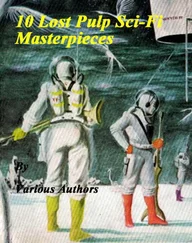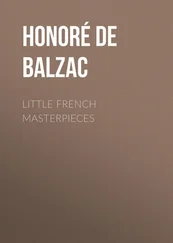W. Maugham - Selected Masterpieces
Здесь есть возможность читать онлайн «W. Maugham - Selected Masterpieces» весь текст электронной книги совершенно бесплатно (целиком полную версию без сокращений). В некоторых случаях можно слушать аудио, скачать через торрент в формате fb2 и присутствует краткое содержание. Жанр: Классическая проза, на английском языке. Описание произведения, (предисловие) а так же отзывы посетителей доступны на портале библиотеки ЛибКат.
- Название:Selected Masterpieces
- Автор:
- Жанр:
- Год:неизвестен
- ISBN:нет данных
- Рейтинг книги:5 / 5. Голосов: 1
-
Избранное:Добавить в избранное
- Отзывы:
-
Ваша оценка:
- 100
- 1
- 2
- 3
- 4
- 5
Selected Masterpieces: краткое содержание, описание и аннотация
Предлагаем к чтению аннотацию, описание, краткое содержание или предисловие (зависит от того, что написал сам автор книги «Selected Masterpieces»). Если вы не нашли необходимую информацию о книге — напишите в комментариях, мы постараемся отыскать её.
Selected Masterpieces — читать онлайн бесплатно полную книгу (весь текст) целиком
Ниже представлен текст книги, разбитый по страницам. Система сохранения места последней прочитанной страницы, позволяет с удобством читать онлайн бесплатно книгу «Selected Masterpieces», без необходимости каждый раз заново искать на чём Вы остановились. Поставьте закладку, и сможете в любой момент перейти на страницу, на которой закончили чтение.
Интервал:
Закладка:
"Did you like the pork?" he asked.
"It was a treat."
"I'll try to bring you some more next time I come. Did Annette like it?"
"She wouldn't touch a thing you'd left. She said she'd rather starve."
"Silly."
"That's what I said to her. As long as the food is there, I said, there's nothing to be gained by not eating it."
They chatted quite amicably while Hans sipped his wine. He discovered that she was called Madame Perier. He asked her whether there were any other members of the family. She sighed. No, they'd had a son, but he'd been mobilized at the beginning of the war and he'd died. He hadn't been killed, he'd got pneumonia and died in the hospital at Nancy.
"I'm sorry," said Hans.
"Perhaps he's better off than if he'd lived. He was like Annette in many ways. He could never have borne the shame of defeat." She sighed again. "Oh, my poor friend, we've been betrayed."
"Why did you want to fight for the Poles? What were they to you?"
"You're right. If we had let your Hitler take Poland he would have left us alone."
When Hans got up to go he said he would come again soon.
"I shan't forget the pork."
Then Hans had a lucky break; he was given a job that took him twice a week to a town in the vicinity so that he was able to get to the farm much oftener. He took care never to come without bringing something. But he made no headway with Annette. Seeking to ingratiate himself with her, he used the simple wiles that he had discovered went down with women; but they only excited her derision. Thin-lipped and hard, she looked at him as though he were dirt. On more than one occasion she made him so angry that he would have liked to take her by the shoulders and shake the life out of her. Once he found her alone, and when she got up to go he barred her passage.
"Stop where you are. I want to talk to you."
"Talk. I am a woman and defenceless."
"What I want to say is this: for all I know I may be here for a long time. Things aren't going to get easier for you French, they're going to get harder. I can be useful to you. Why don't you be reasonable like your father and mother?"
It was true that old Perier had come round. You couldn't say that he was cordial, he was indeed cold and gruff, but he was civil. He had even asked Hans to bring him some tobacco, and when he wouldn't accept payment for it had thanked him. He was pleased to hear the news of Soissons and grabbed the paper that Hans brought him. Hans, a farmer's son, could talk about the farm as one who knew. It was a good farm, not too big and not too small, well watered, for a sizable brook ran through it, and well wooded, with arable land and pasture. Hans listened with understanding sympathy when the old man bewailed himself because without labour, without fertilizers, his stock taken from him, it was all going to rack and rain.
"You ask me why I can't be reasonable like my father and mother," said Annette.
She pulled her dress tight and showed herself to him. He couldn't believe his eyes. What he saw caused such a convulsion in his soul as he had never known. The blood rushed to his cheeks.
"You're pregnant."
She sank back on her chair and leaning her head on her hands began to weep as though her heart would break.
"The shame of it. The shame."
He sprang towards her to take her in his arms.
"My sweet," he cried.
But she sprang to her feet and pushed him away.
"Don't touch me. Go away. Go away. Haven't you done me enough harm already?"
She flung out of the room. He waited by himself for a few minutes. He was bewildered. His thoughts in a whirl, he rode slowly back to Soissons, and when he went to bed he couldn't get to sleep for hours. He could think of nothing but Annette and her swollen body. She had been unbearably pathetic as she sat there at the table crying her eyes out. It was his child she bore in her womb. He began to feel drowsy, and then with a start he was once more wide awake, for suddenly it came to him, it came to him with the shattering suddenness of gun-fire: he was in love with her. It was such a surprise, such a shock that he couldn't cope with it. Of course he'd thought of her a lot, but never in that way, he'd thought it would be a great joke if he made her fall in love with him, it would be a triumph if the time came when she offered what he had taken by force; but not for a moment had it occurred to him that she was anything to him but a woman like another. She wasn't his type. She wasn't very pretty. There was nothing to her. Why should he have all of a sudden this funny feeling for her? It wasn't a pleasant feeling either, it was a pain. But he knew what it was all right; it was love, and it made him feel happier than he had ever felt in his life. He wanted to take her in his arms, he wanted to pet her, he wanted to kiss those tear-stained eyes of hers. He didn't desire her, he thought, as a man desires a woman, he wanted to comfort her, he wanted her to smile at him - strange, he had never seen her smile, he wanted to see her eyes - fine eyes they were, beautiful eyes - soft with tenderness.
For three days he could not leave Soissons and for three days, three days and three nights, he thought of Annette and the child she would bear. Then he was able to go to the farm. He wanted to see Madame Perier by herself, and luck was with him, for he met her on the road some way from the house. She had been gathering sticks in the wood and was going home with a great bundle on her back. He stopped his motor-cycle. He knew that the friendliness she showed him was due only to the provisions he brought with him, but he didn't care; it was enough that she was mannerly, and that she was prepared to be so as long as she could get something out of him. He told her he wanted to talk to her and asked her to put her bundle down. She did as he bade. It was a grey, cloudy day, but not cold.
"I know about Annette," he said.
She started.
"How did you find out? She was set on your not knowing."
"She told me."
"That was a pretty job of work you did that evening."
"I didn't know. Why didn't you tell me sooner?"
She began to talk, not bitterly, not blaming him even, but as though it were a misfortune of nature, like a cow dying in giving birth to a calf or a sharp spring frost nipping the fruit trees and ruining the crop, a misfortune that human kind must accept with resignation and humility. After that dreadful night Annette had been in bed for days with a high fever.
They thought she was going out of her mind. She would scream for hours on end. There were no doctors to be got. The village doctor had been called to the colours. Even in Soissons there were only two doctors left, old men both of them and how could they get to the farm even if it had been possible to send for them? They weren't allowed to leave the fown. Even when the fever went down Annette was too ill to leave her bed, and when she got up she was so weak, so pale, it was pitiful. The shock had been terrible, and when a month went by, and another month, without her being unwell she paid no attention. She had always been irregular. It was Madame Perier who first suspected that something was wrong. She questioned Annette. They were terrified, both of them, but they weren't certain and they said nothing to Perier. When the third month came it was impossible to doubt any longer. Annette was pregnant.
They had an old Citroen in which before the war Madame Perier had taken the farm produce into the market at Soissons two mornings a week, but since the German occupation they had had nothing to sell that made the journey worth while. Petrol was almost unobtainable. But now they got it out and drove into town. The only cars to be seen were the military cars of the Germans. German soldiers lounged about. There were German signs in the streets, and on public bmldings proclamations in French signed by the Officer Commanding. Many shops were closed. They went to the old doctor they knew, and he confirmed their suspicions. But he was a devout Catholic and would not help them. When they wept he shrugged his shoulders.
Читать дальшеИнтервал:
Закладка:
Похожие книги на «Selected Masterpieces»
Представляем Вашему вниманию похожие книги на «Selected Masterpieces» списком для выбора. Мы отобрали схожую по названию и смыслу литературу в надежде предоставить читателям больше вариантов отыскать новые, интересные, ещё непрочитанные произведения.
Обсуждение, отзывы о книге «Selected Masterpieces» и просто собственные мнения читателей. Оставьте ваши комментарии, напишите, что Вы думаете о произведении, его смысле или главных героях. Укажите что конкретно понравилось, а что нет, и почему Вы так считаете.












